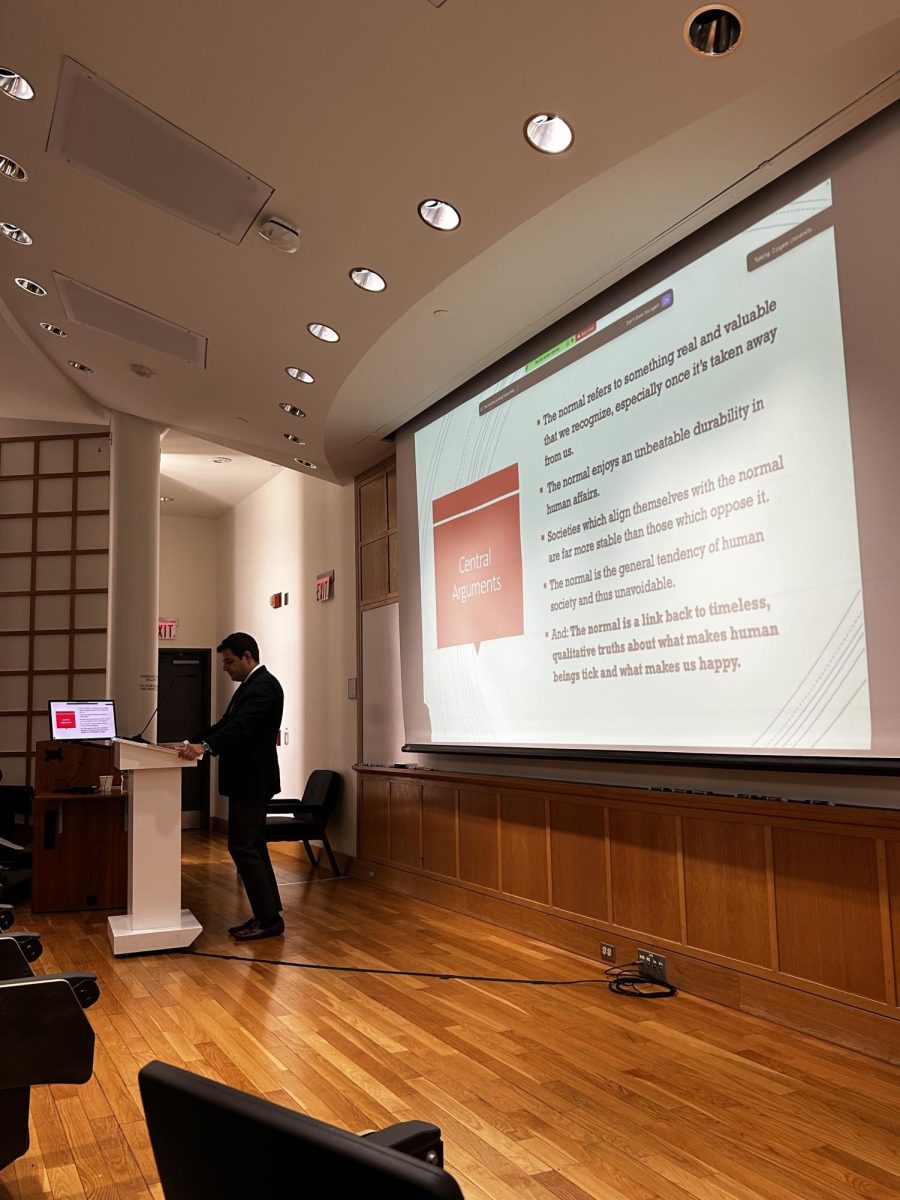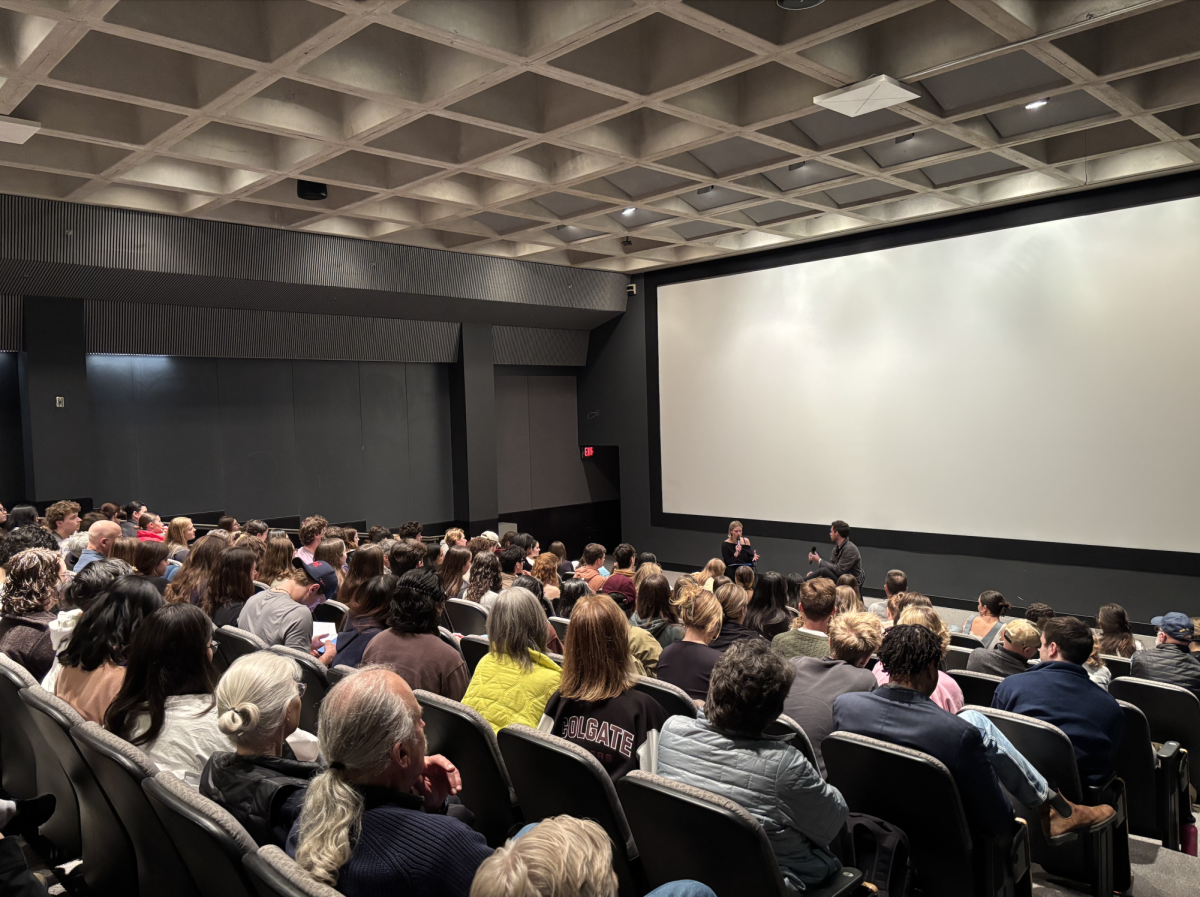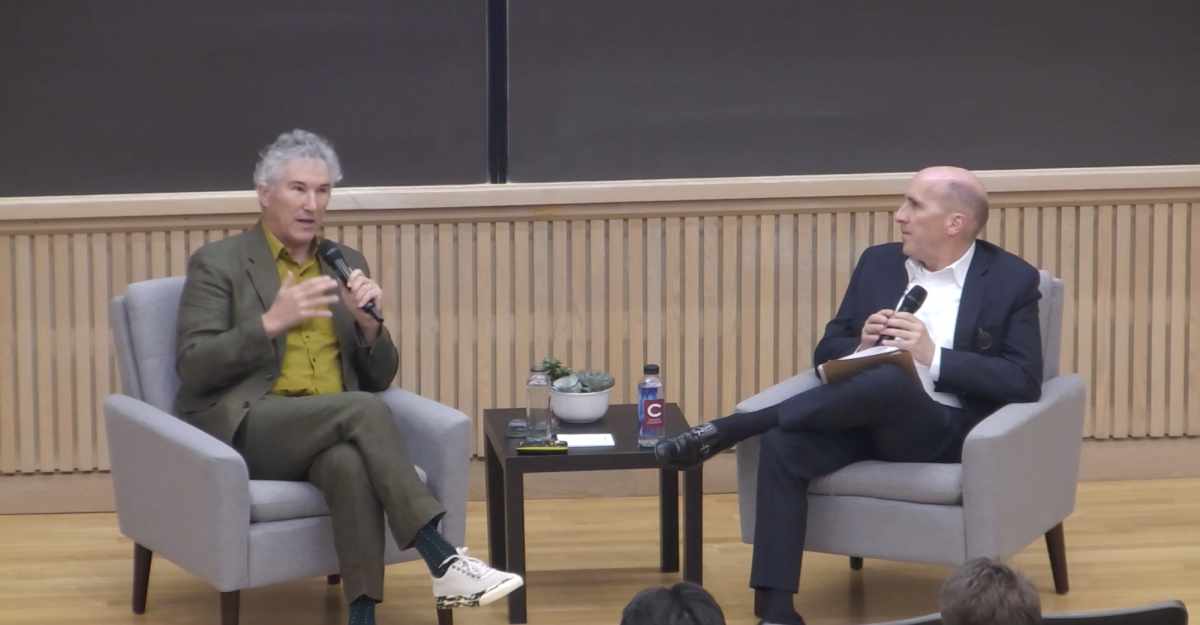The Native American Studies program hosted Dr. Victor Montejo as a part of the department’s Anthony Aveni Lecture Series on Thursday, April 3. Montejo explored the central idea of his most recent work, “Mayalogue: An Interactionist Theory of Indigenous Cultures.” The book attempts to understand the connections between humans and non-humans while working to decolonize traditional versions of the anthropological perspective.
Montejo coined the term “Mayalogue” in an attempt to set up his book as a dialogue between anthropologists and Indigenous people.
“In this book, I work to take tribal wisdom and articulate it as an interactionist theory,” Montejo said.
He shared that the main thesis of his book is that the Mayalogue is a cosmocentric paradigm where Indigenous belief systems are all connected together, which leads to the development of the concept of “conciencia cósmica,” or “cosmic consciousness.”
“The Indigenous concept of culture discussed in Mayalogue is very complex,” Montejo said. “It makes full reference to humans’ relationships with other living beings on Earth. Here, it is used to explain Indigenous belief systems in relation to the great connection or trilogy: human, nature and the supernatural or spiritual world.”
The anthropologist recognized the significance of repositioning Indigenous cultures not as isolated traditions but as a dynamic system that contributes to a larger cosmic order. He emphasized that the pieces of the sacred trilogy — human beings, nature and the spiritual realm — are consistently working together, making these relationships integrated.
First-year Marina Garcia found Montejo’s explanation of the sacred trilogy to be insightful.
“I think that the teachings of Indigenous culture are critical, especially in contemporary contexts where global warming is an issue that calls for large concern,” Garcia said.“Yet, we do not see anyone having consideration for nature because there is a disconnect between humanity and the land we occupy.”
Montejo used the Mayan calendar as an example of unification between the trilogy.
“The Mayan calendar, also called ‘bundle of knowledge,’ means that he who is well-knowledged in understanding it will know the happenings of the natural world,” Montejo said.
By developing this connection, Montejo says that Indigenous peoples have a sense of cosmic belonging. Because Indigenous peoples view themselves as part of the totality of creation, this encompasses concepts such as rivers, mountains, animals, celestial bodies and spirits. There exists no separation between the human and the universe — they are one.
This, Montejo argues, is a break from traditional ethnographies and how they focus on Indigenous peoples’ cultures.
“Traditional ethnographies take culture as an isolated item, dissecting different aspects of it to be studied separately: language, art, religion, the economy, etc. For Native Americans, the tangible culture is only one part of the totality that produces action,” Montejo said.
These outside perspectives are what partially inspired Montejo to become an anthropologist and, as a result, produce texts such as this book.
His time away from being an anthropologist also had a great impact on his aim. Serving as the Minister of Peace in Guatemala from 2004 to 2008 while in the Guatemalan National Congress, his connection to his old traditions led him to want an in-depth understanding of the culture and to be able to share it with the academic world.
Sophomore Emma Shinsato, who heard about the lecture through Associate Professor of Anthropology Santiago Juarez, shared how she personally resonated with the connection that Montejo has with his culture.
“He made me reflect on my own culture, as my grandparents were born in Hawaii with Polynesian roots. I’ve always wished for the opportunity to understand and connect with my Polynesian heritage the way he [Montejo] did with his culture, which was something he was able to confidently share with the world through his book,” Shinsato said.
Montejo also talked about his diligence in earning his degrees to begin his intellectual career.
“If I graduate and get a position working in a university, I can do things I couldn’t do as a graduate student,” Montejo said.
Montejo began working at the University of California, Davis, serving as department chair in the Native American studies program and working to strengthen the graduate program. His biggest mission in decolonizing anthropology was prompted by his frustration with people acting ignorant and choosing not to understand Indigenous knowledge.
With humorous disappointment, he cited the viral 2012 prediction that the world was going to end.
“People were coming up with these prophecies that the end of the world was coming, and it was everywhere. What triggers me is that, if people were so panicked, why didn’t they try to learn what was actually going on?” Montejo asked.
The misconception was that the Mayan calendar’s Long Count had ended, marking the transition to a new cycle rather than a catastrophic end. This was one of many instances that inspired Montejo to write “Mayalogue.” He said he believes that by having more Indigenous intellectuals, dominant narratives that work to separate culture from nature and spirituality will be challenged.
Montejo finished the lecture on the note that all human beings must learn to be in a reciprocal relationship between the planet and the cosmos. The next project he is working on has similar goals, as he wants to unpack how to read Mayan hieroglyphs.
“Texts in Mayan are always translated by people who aren’t native speakers, so it will be important to release a book with recommendations on how to translate these texts,” Montejo said.
Montejo’s work is crucial because it is an integration of human rights and representation for Indigenous worldviews, which will inspire sustainable development.











